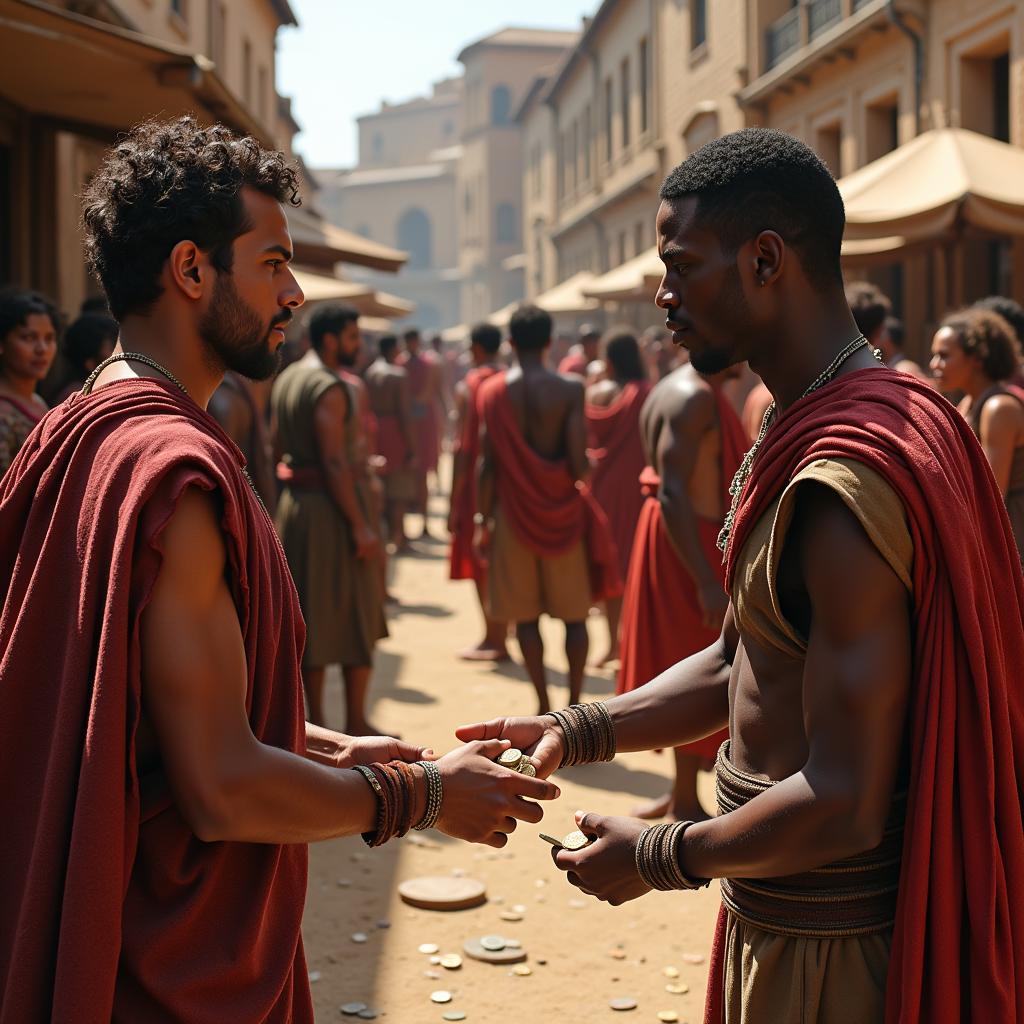Enslavement was a harsh reality in Roman society, impacting countless lives. However, there were avenues for enslaved people to gain their freedom, offering a glimmer of hope in a system built on forced labor. This article explores the various ways enslaved people could achieve liberation in ancient Rome, from formal legal processes to informal social practices.
Paths to Freedom: Manumission and Beyond
One of the most common ways enslaved people could gain their freedom was through manumission, the act of a slave owner freeing their slave. Manumission could occur for various reasons, from rewarding loyal service to fulfilling a dying wish. There were two primary forms of manumission: formal and informal. Formal manumission involved legal procedures, granting the freed person full Roman citizenship. Informal manumission, while simpler, often didn’t confer full citizenship rights.
Formal manumission could be performed through several methods, including registering the enslaved person as a citizen in the census or by vindicta, a symbolic act performed before a magistrate. Informal methods included declaring freedom in front of witnesses or through a testamentary document. Regardless of the method, manumission profoundly impacted the lives of formerly enslaved people, allowing them to integrate into Roman society with varying degrees of legal and social standing.
Self-Purchase and Other Avenues
While manumission relied on the goodwill of the slave owner, enslaved people could also take matters into their own hands by purchasing their freedom. This involved accumulating peculium, personal savings allowed by some owners. These savings could be earned through extra work, tips, or even small business ventures. Achieving freedom through self-purchase often came with a sense of pride and autonomy.  Roman Slave Marketplace – Buying and Selling Freedom
Roman Slave Marketplace – Buying and Selling Freedom
Other less common paths to freedom included military service, especially during times of war. Enslaved people who fought bravely could be granted their freedom as a reward. In some cases, the Roman state might purchase and free enslaved people who had exposed conspiracies or performed other exceptional services.
The Life of a Freed Person: Challenges and Opportunities
Gaining freedom was a momentous occasion, but it didn’t always translate to immediate equality. Freedmen and freedwomen often faced social stigma and legal limitations. They were obligated to certain duties toward their former owners, such as patron-client relationships. However, they could own property, marry, and even hold public office, albeit with some restrictions. Their descendants, however, enjoyed full Roman citizenship. why was the family important in roman society
Marcus Tullius Cicero, a prominent Roman statesman and orator, once observed the significance of manumission: “The greatest glory of a freeborn Roman citizen was to have as many freedmen as possible bound to him by ties of gratitude.” This statement reveals the complex social dynamics surrounding freed people in Roman society, highlighting both the potential for upward mobility and the enduring impact of their former status.
Conclusion: The Complex Reality of Freedom in Ancient Rome
The question of how enslaved people could gain their freedom in Roman society unveils a complex tapestry of legal procedures, social customs, and personal struggles. While manumission represented the most common path, self-purchase, military service, and state intervention offered alternative routes to liberation. Despite facing ongoing challenges, freed people played an integral role in the fabric of Roman society, demonstrating resilience and resourcefulness in their pursuit of a better life.
FAQs
- Could enslaved women gain their freedom in Rome? Yes, enslaved women could be manumitted just like men.
- What rights did freed people have? Freed people could own property, marry, and work, but they often faced social stigma and certain legal restrictions.
- What was peculium? Peculium referred to personal savings that some enslaved people were allowed to accumulate.
- Could freed people become Roman citizens? Through formal manumission, freed people could gain Roman citizenship.
- What were the social implications of being a freed person? Freed people often faced social stigma and were tied to their former owners through patron-client relationships.
If you need further assistance, please contact Phone Number: 02043854663, Email: [email protected] or visit our address: Khu 34, Bac Giang, 260000, Vietnam. We have a 24/7 customer support team.